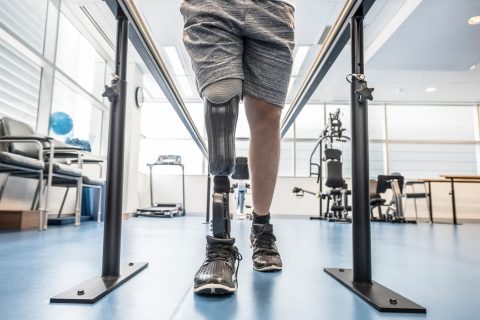SGLT2 Inhibitor Lawsuits
Invokana and Farxiga lawsuits accounted for most of the SGLT2 inhibitor diabetes drug cases filed in federal court. Plaintiffs’ injuries include amputations, kidney damage, diabetic ketoacidosis and a flesh-eating disease called Fournier’s gangrene. The Invokana MDL closed in 2023 and the Farxiga lMDL shut down in 2020. There were no verdicts or settlements in either.
Latest Updates on SGLT2 Inhibitor — Invokana and Farxiga — Lawsuits
The Invokana multidistrict litigation — MDL No. 2750 — was closed on Apr. 26, 2023. A total of 1,208 cases were closed.
The Farxiga MDL — No. 2776 — was terminated in 2020. There were 67 cases closed and one remanded to the court where it was originally filed.
Drugwatch is currently unaware of any attorneys accepting Invokana or Farxiga lawsuits.
Why Did People File SGLT1 Inhibitor Lawsuits?
More than a thousand people filed lawsuits against Type 2 diabetes drugmakers Johnson & Johnson, Bristol-Myers Squibb and AstraZeneca over injuries ranging from a flesh-eating disease called Fournier’s gangrene to life-threatening blood infections.
The U.S. Food and Drug Administration approved Invokana — the first drug in the SGLT2 inhibitor class of Type 2 diabetes drugs — in 2013. Several other drugs in the class, including Farxiga in 2014, followed it.
Lawsuits claimed Johnson & Johnson, Bristol-Myers Squibb, AstraZeneca and other manufacturers knew their drugs could injure people but concealed the dangers from patients and their doctors. Despite knowing the dangers, they actively marketed defective and dangerous drugs to the public.
| Drug Names | Manufacturers |
|---|---|
| Invokana, Invokamet and Invokamet XR | Johnson & Johnson, Janssen Pharmaceuticals |
| Farxiga and Xigduo XR | Bristol-Myers Squibb, AstraZeneca |
| Jardiance, Glyxambi and Synjardy | Boehringer Ingelheim, Eli Lilly |
Lawsuits said SGLT2 manufacturers “negligently, recklessly and carelessly marketed, distributed and sold [each drug] without adequate instructions or warning of its serious side effects and unreasonably dangerous risks.” By the time the FDA released warnings, it was too late for some people who suffered serious health problems and filed lawsuits.
Plaintiffs said if they had known of the dangers, they would never have used the medications. Side effects caused them to endure pain, suffering, loss of quality of life and significant financial losses. Some people lost loved ones because manufacturers failed to warn them about the side effects of SGLT2 Inhibitors.
For example, Raymond Jack’s widow, Loretta, filed a lawsuit against J&J and Janssen Pharmaceuticals after Raymond took Invokana and died of complications. On March 5, 2015, Raymond began taking Invokana. By June, he had suffered a stroke, acute kidney injury, acute renal insufficiency and diabetic ketoacidosis stroke.
Then, in September he was in the hospital again for stroke, renal insufficiency, dehydration, acute kidney injury and acute toxic metabolic encephalopathy. In October, he was hospitalized again with a urinary tract infection and chronic kidney disease Stage III. He died in November 2015 because of his injuries.
Most of the injuries mentioned in lawsuits apply to all SGLT2 inhibitors with the exception of amputations. Invokana is the only drug linked to amputations. In general, people who suffered an injury after taking an SGLT2 inhibitor prior to the FDA warning may be eligible to file a lawsuit. But each case is different, and only an attorney can tell you if you qualify.
Examples of Lawsuits & Claims
SGLT2 lawsuits named many different drugs and manufacturers and claim a variety of injuries. These drugs affect older and younger people of both genders across the country. When people first started filing lawsuits, the main injuries were ketoacidosis and kidney injury. Because of expanded FDA warnings, people are filing suits for amputations and Fournier’s gangrene — these are the newest cases.
- Polley Dailey
- Polley Dailey sued Janssen Pharmaceuticals and J&J on July 6, 2017. She started taking Invokana in December 2014. About a year later, she had to have her right leg amputated. She said the defendants did not warn and mislead the public about the risks, specifically amputation.
- Lee Letourneau
- Lee Letourneau sued Janssen Pharmaceuticals and J&J on Sept. 8, 2018. He took Invokamet from February 2017 until the end of the year. Doctors diagnosed him with Fournier’s gangrene and removed 60 percent of his scrotum. Letourneau’s lawsuit states, “Nowhere does the [drug] label state that a male patient might suffer Fournier’s gangrene, or lose part of his scrotum.”
- Betty Barker
- Betty Barker and her husband Scott Barker sued Bristol-Myers Squibb and AstraZeneca on June 27, 2017. Just four months after taking Farxiga, Betty ended up in the hospital for diabetic ketoacidosis and dehydration. Hospital doctors told her to stop taking Farxiga.
- Melissa Mitchell
- Melissa Mitchell sued Eli Lilly and Boehringer Ingelheim on July 6, 2016. She began taking Jardiance in February 2015, and by June she was hospitalized for ketoacidosis. Defendants tried to get the case dismissed by saying her claims were based on side effects reported before Jardiance hit the market. But the judge let the case proceed and ruled the drugmakers should have changed their label to add warnings.
Calling this number connects you with a Drugwatch.com representative. We will direct you to one of our trusted legal partners for a free case review.
Drugwatch.com's trusted legal partners support the organization's mission to keep people safe from dangerous drugs and medical devices. For more information, visit our partners page.




